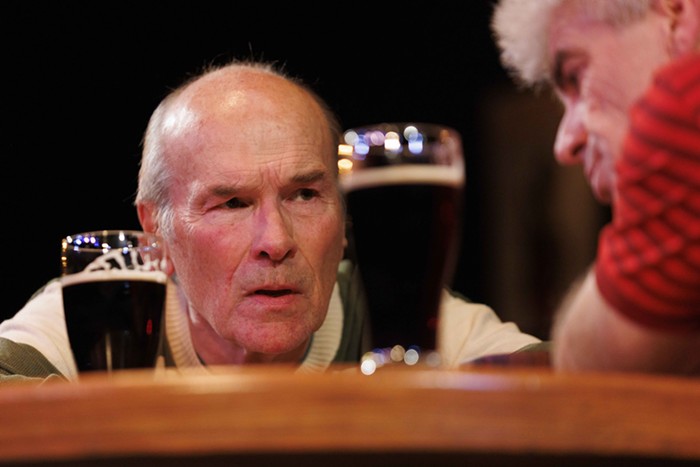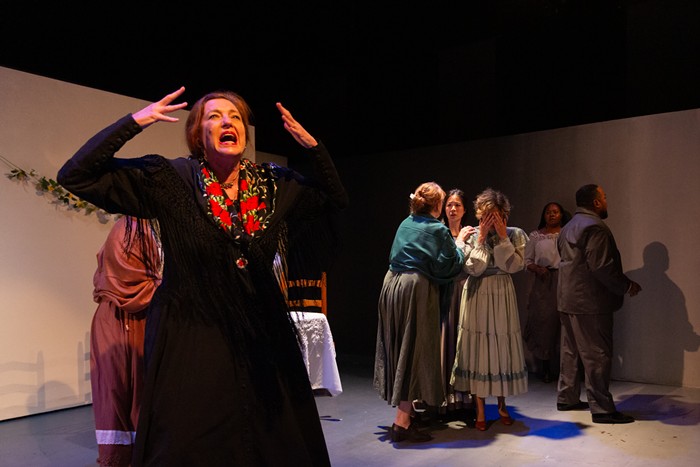Full disclosure: I drank a beer during the second half of Portland Playhouse's bobrauschenbergamerica. It was free, and a man dressed like a peanut vendor at a baseball stadium brought it to me at my seat. I probably should have taken the professional high ground and Just Said No—but not only would that have been a career first, it would have gone against the spirit of this production.
bobrauschenbergamerica is first and foremost an experience, a chaotic cultural dunk tank that overflows the boundaries of the stage to splash over into the audience. Structured as a "collage," and based on the work of noted artist Bob Rauschenberg, there's no point in looking for a narrative throughline here, or even much in the way of sense-making, really. Rauschenberg was dedicated to breaking down the boundaries between art and life, often doing so by incorporating found or mundane objects into his work—and with bobrauschenbergamerica, playwright Charles Mee aims to do the same, presenting his best stab at a theatrical adaptation of Rauschenberg's work through a series of snapshots of the American experience.
Portland Playhouse brings an admirable enthusiasm to this production, if not the subtlety required to make every scene stick. The actors do best with the slower scenes, where their exuberance is focused and restrained: a conversation between two lovers, or a discussion of the merits of chicken farming. When things speed up—when the cast zips through a fast-forwarded reenactment of a "documentary about America," for instance—Brian Weaver's directorial hand isn't strong enough to draw clarity from the chaos, and the show takes on the numbing, incoherent giddiness of a children's pageant.
The character of Bob Rauschenberg's mother anchors the script, and the actress playing the role—Lorraine Bahr—anchors the production, lending a vital steadiness to a show that at times threatens to run away with itself. "Art was not a part of our lives," she says of Rauschenberg's upbringing, a sentiment that accumulates irony with every repetition, the play's gist being that art, or at least beauty, is everywhere—it's all in how you look at it.



















